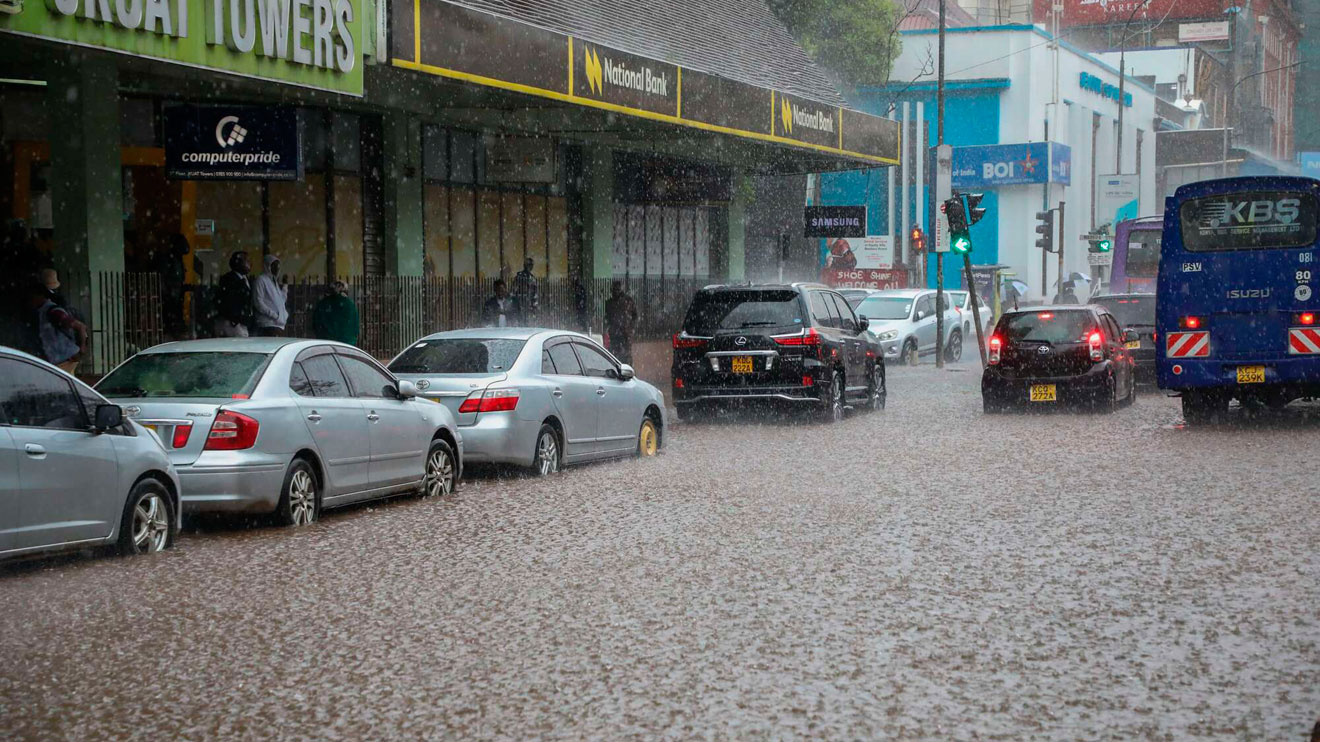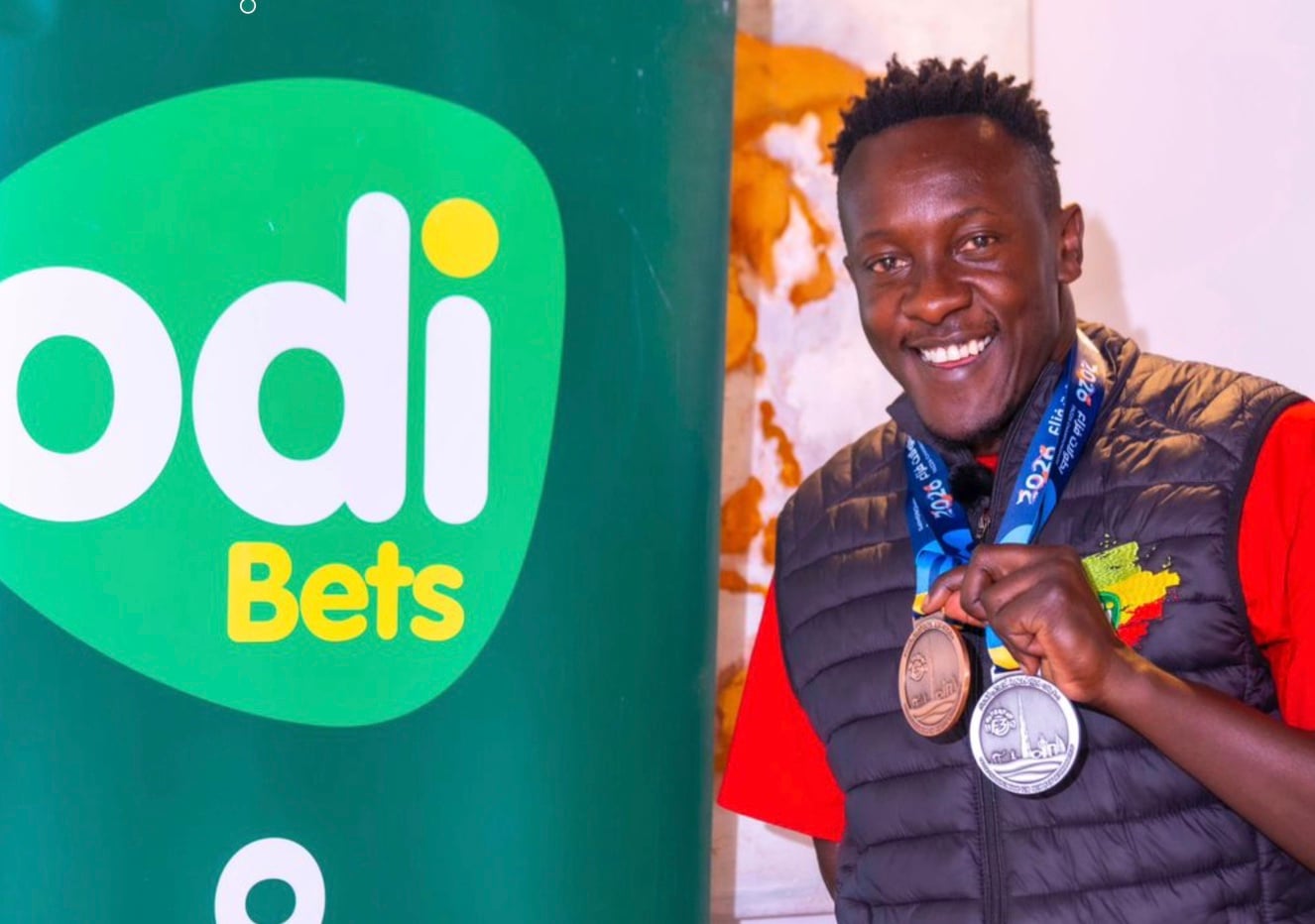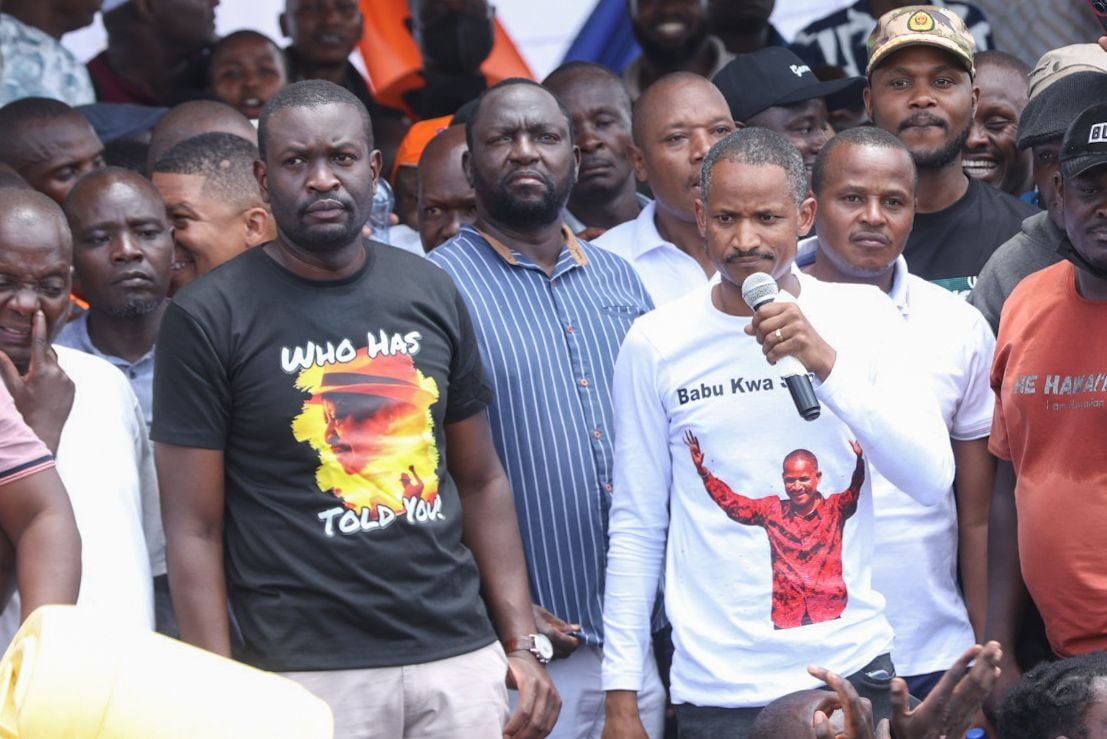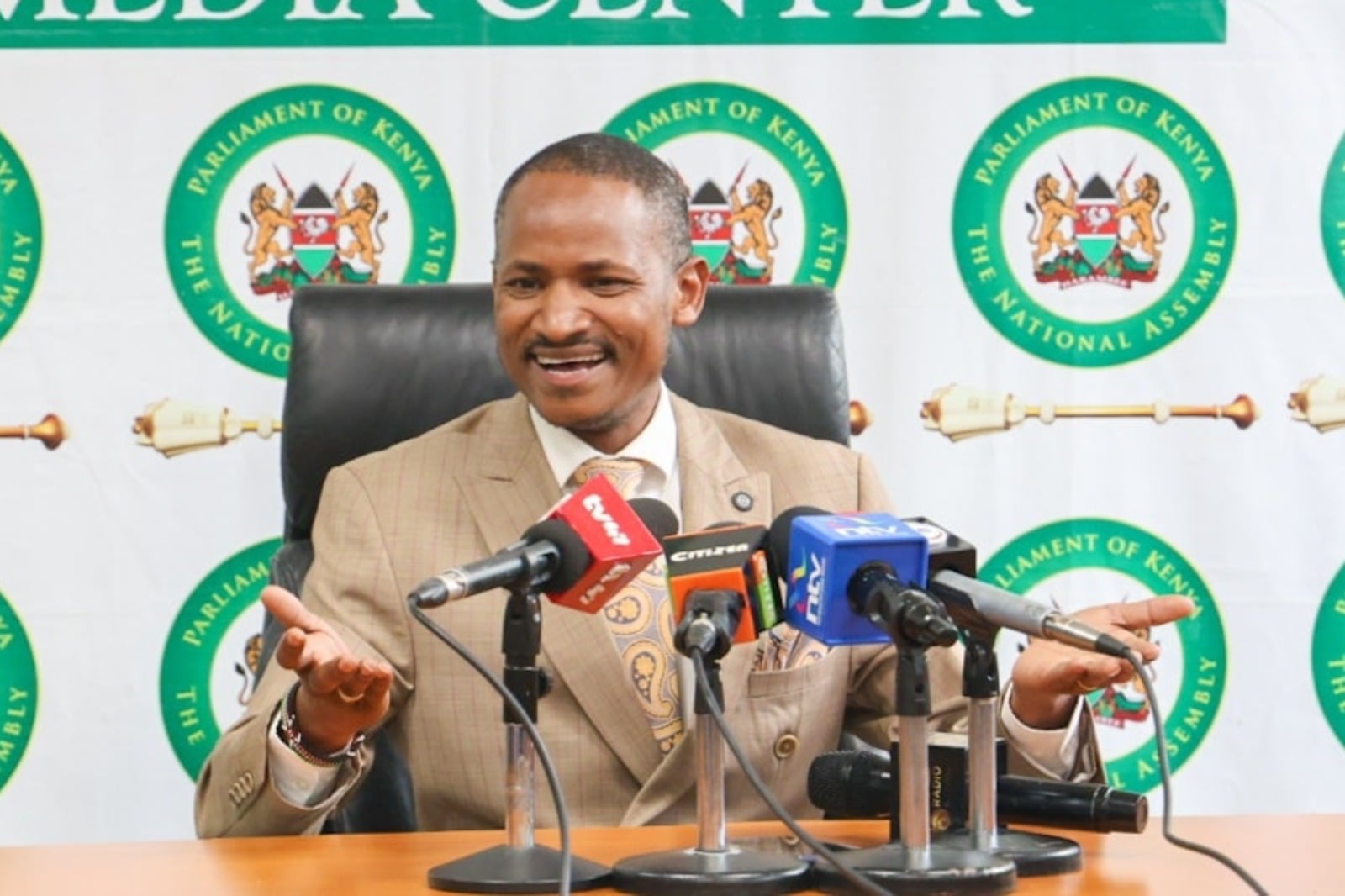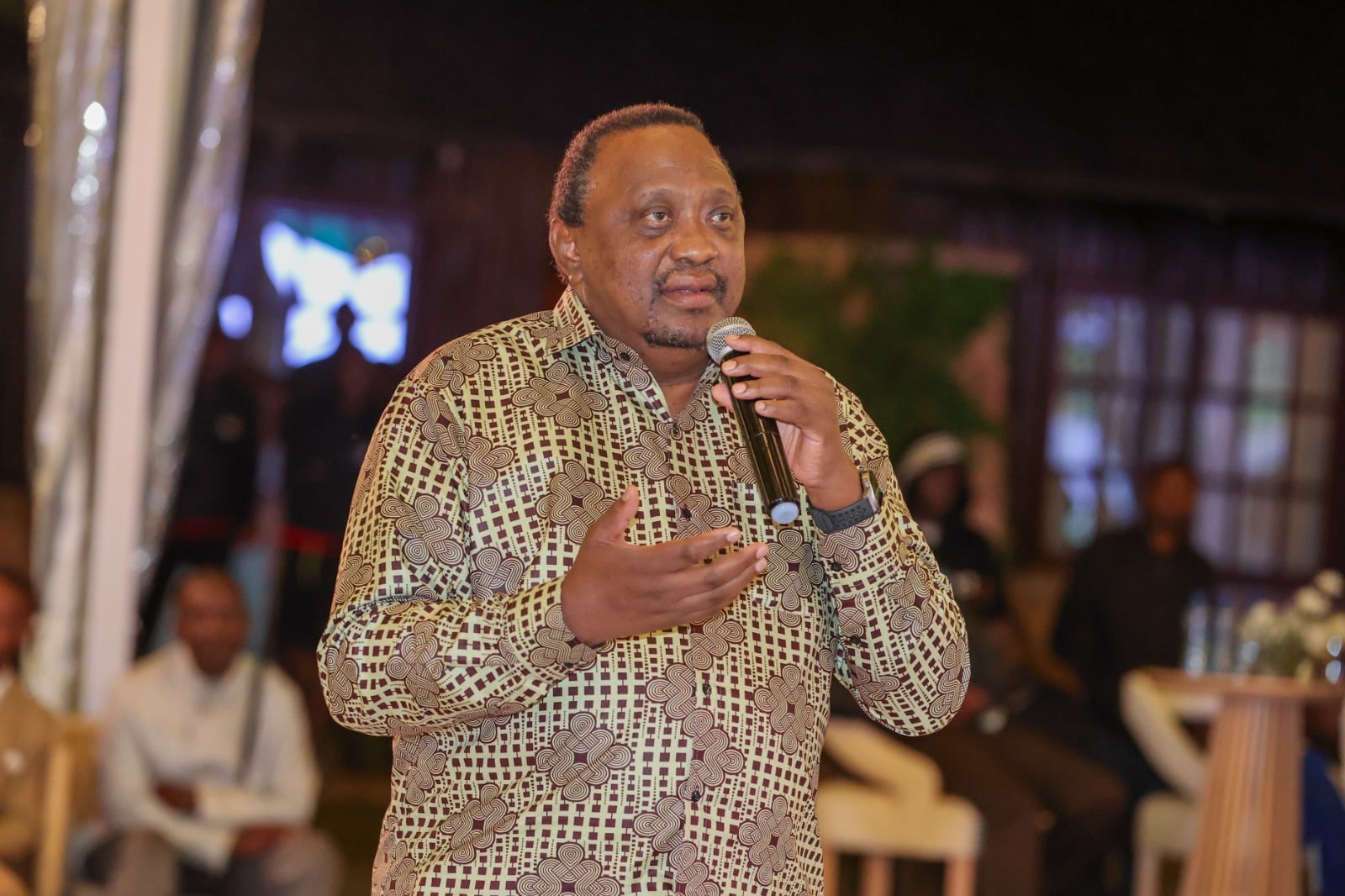Jane Frances is a six and a half years cancer survivor. The 55-year-old survived a rare form of triple-negative breast cancer which refers to cancer cells that don't have estrogen or progesterone receptors and also don't make too much of the protein called HER2.
Despite her ordeal, she has not stopped lending a helping hand to other cancer patients from all walks of life. Jane identifies victims of cancer In Kenya, pays for their medical care through the National Insurance Hospital Fund (NHIF), and offers patients prayer, presence, and psychosocial support through her Cancer Information Support Network.
In April 2014, Jane was diagnosed with triple-negative cancer which came as a shock to her as she had always enjoyed good health. The cancer was at an advanced stage; stage 3B. Doctors advised her to start chemotherapy immediately because the cancer had already left the primary to secondary level.
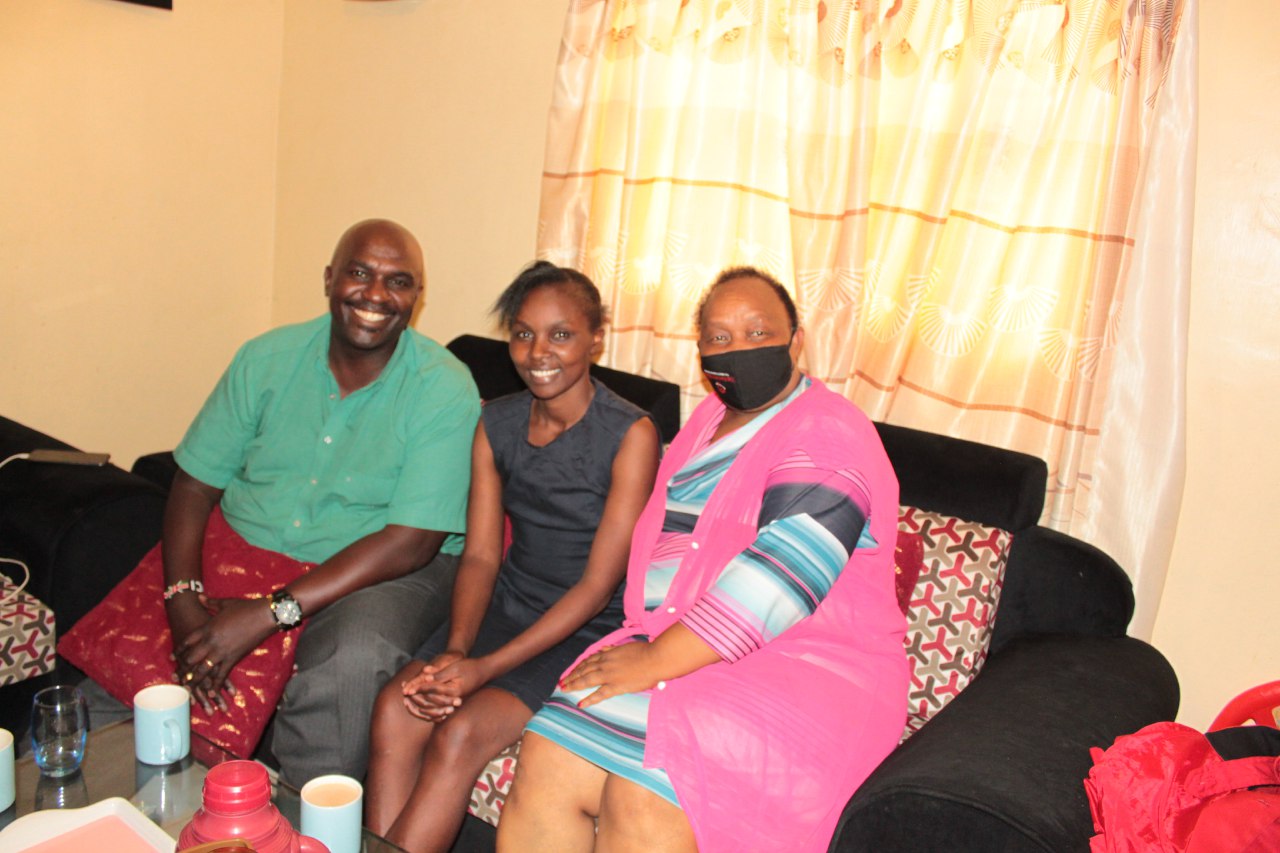
Read More
Jane Frances during her work.
“Infact when the biopsy results came out on a Tuesday, I was told if I don’t start my chemotherapy session on a Friday the cancer was going to reach stage 4,” she says.
Jane took time to consult on where best to seek treatment, locally or abroad. Four months later, on August 4th, 2014, her treatment journey began at Aga Khan Hospital, Nairobi.
At the time the only money she had was one hundred thousand Kenya shillings, which was her last salary. Yet the cost of the treatment was 3Million. Jane was a lecturer and taught Communication Studies in five Kenyan Universities.
At the time of the diagnosis, she was a lecturer at Jomo Kenyatta University of Agriculture and Technology (JKUAT) and was also pursuing her Ph.D. studies in Mass communication.
“Because the cancer was in its advanced stage, doctors advised me to get a 5-year leave of absence to concentrate on treatment so as to keep away the risk of Metastasis (the spread of cancer cells to new areas of the body).” she expounds adding that the doctors said that if anyone could survive cancer for 5 years then there was a higher likelihood that that person could survive more years.
Determined to live, Jane told herself because she was triple-negative, she would start a triple positive ministry which later bore fruit to Cancer Information Support Network. She says positivity comes in three forms; Prayer, Presence, and Psychosocial support.
“I refused negativity in my life; I said I need positive things for cancer patients. I decided what I am able to do I will do,” says Jane who feels the work she is doing is a ministry and a calling, now that God has healed her.
Jane explains, “When God heals you, you are not to just stay in your house. For me personally, I felt yes I am healed but for what purpose? I decided to do what I can to ease the burden for cancer patients for all the years that God will give me so that we can all testify that there is healing.”
The Cancer Information Support Network is aimed at holding the hand of cancer patients so that they can live a dignified life because many of them are abandoned by family members as soon as they get diagnosed.
When Jane started the Cancer Information Support Network, it was something she had learnt from her mother who would tag her along during her visits to priests at Mater hospital. Her mother was passionate about helping the sick and praying for them.
“It is fulfilling to support others and see that that they are getting strengthened. But when you lose a patient or the patient fails to respond to medication or is financially down and I am not able to help, I feel sad,” Jane says.
Fortunately for Jane, her family, friends, and her church; the Consolata shrines Westlands came through and were very supportive.
“I had to sell some of my property including the house I was living in to raise funds and seek further medical care In India where I had to undergo 7 surgeries in two years. I returned to my parent’s home where I sought accommodation.
From the one hundred thousand that I had then, God came in for me. I finished treatment despite having to sell some of my property because seeking further treatment in India was very expensive. I had to travel to India 6 times in a year because Triple-negative breast cancer can be very aggressive.
” Five years later in 2017, Jane was given a clean bill of health referred to by doctors as no evidence of disease (NOD). Still Jane observes a strict diet and goes for medical tests regularly to avoid recurrence.
Her strongest pillar is her faith in God. Having lost two parents to cancer was devastating for her noting that the dad died in 2013 from prostate cancer and her mother in 2016 from liver and pancreatic cancer.
“My mum was my caregiver, and you can imagine she died 10 days after being diagnosed. I had no time to mourn but my faith in God kept me strong,” she explains how tough the death of her mum was for her especially being the firstborn.
A staunch Roman Catholic, Jane believes her work is grounded on the seven works of corporal mercy that include; caring for the sick, feeding the hungry, visiting the imprisoned, burying the dead, clothing the naked, giving shelter to travelers, and offering drink to the thirsty.
“From these seven works of mercy I chose to be there for the sick,” she says adding that being a communications professional, she has joined hands with other cancer survivors to lobby and advocate for the rights of cancer patients in Kenya.
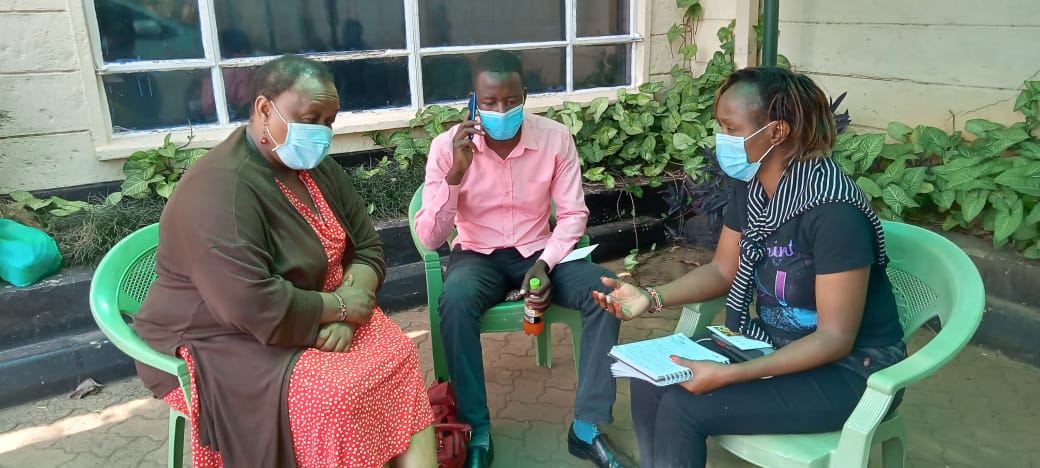
Jane Frances during an interview with journalist Terry Nzau
They have so far done advocacy and made petitions to the Kenyan parliament through the Ministry of Health on cancer treatment and different aspects and challenges that cancer patients go through.
When asked if she has gained any recognition for the noble work she does, Jane says “Deutsche Welle, a German public state-owned international broadcaster supports her NHIF activity that she currently pays for cancer patients.” Apart from that, she is not aware of any other recognition but since her Cancer Support Information Network focuses on giving cancer patients a dignified life, this by itself is a recognition that she is happy about.
Jane considers herself a patient though a cancer survivor. “Cancer is a tricky disease. We live with the fear of recurrence, maybe it will move from one breast to the other or Metastasis,” she says and advices patients “once diagnosed with cancer start treatment with whatever little amount of money you have. Cancer is not a death sentence. Start treatment immediately. You do not need to travel abroad for treatment. “
She believes in positivity and that being positive can give a patient the drive to survive and believe they are going to heal. Most importantly, she recommends joining a support group, a support system where you meet others who have gone through the same troubles as yours and they give you hope.
To the families of cancer patients, Jane suggests the need to be there for loved ones noting that cancer treatment is challenging and draining financially and emotionally.
She says, “Put yourself in the shoes of the cancer patient and assume you are the one who is sick then you are in the house and nobody bothers on what you eat, how you feel or if you need to go for treatment?”
Jane feels that the government needs to amplify its efforts towards the cancer patients, especially during this Covid-19 pandemic where patients are vulnerable and most of them or their caregivers have lost their jobs. “The same way the government is handling Covid-19, HIV/AIDS and TB, they should do the same for cancer patients so that they have enough screening machines and get proper treatment in good time.”
Jane considers herself as a leader in the little she does but if given a chance in national leadership she would want to work in an environment where she can be a real advocate of cancer patients because she feels their voice is not heard.
